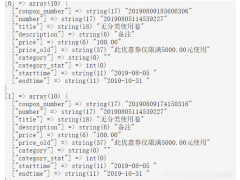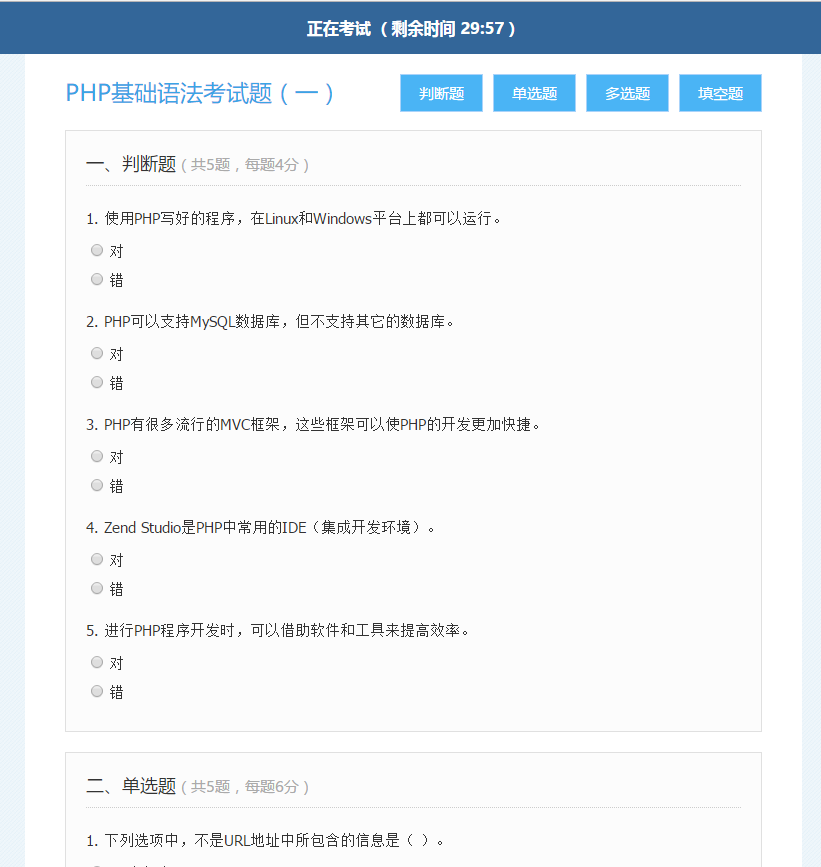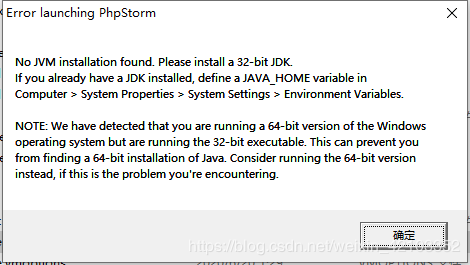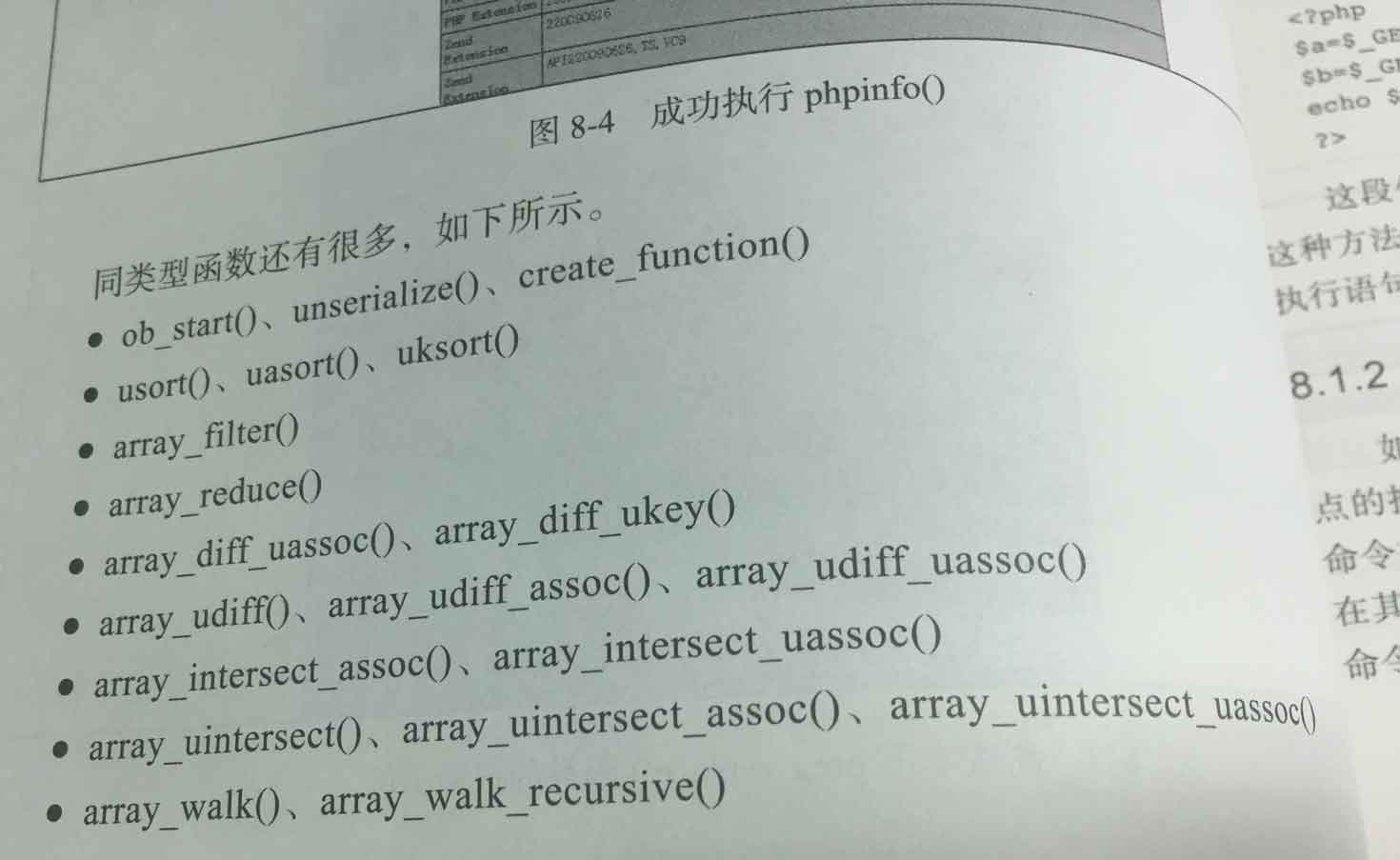这篇文章主要介绍了PHP设计模式之装饰器(装饰者)模式(Decorator),结合实例形式详细分析了PHP装饰者模式的概念、原理、用法及相关操作注意事项,需要的朋友可以参考下
本文实例讲述了PHP设计模式之装饰器(装饰者)模式(Decorator)入门与应用。分享给大家供大家参考,具体如下:
通常情况下,我们如果要给对象添加功能,要么直接修改对象添加相应的功能,要么派生对应的子类来扩展,抑或是使用对象组合的方式。显然,直接修改对应的类这种方式并不可取。
在面向对象的设计中,我们也应该尽量使用对象组合,而不是对象继承来扩展和复用功能。装饰器模式就是基于对象组合的方式,可以很灵活的给对象添加所需要的功能,并且它的本质就是动态组合,一句话,动态是手段,组合才是目的。
也就是说,在这种模式下,我们可以对已有对象的部分内容或者功能进行调整,但是不需要修改原始对象结构,理解了不???
还可以理解为,我们不去修改已有的类,而是通过创建另外一个装饰器类,通过这个装饰器类去动态的扩展其需要修改的内容。而它的好处也是显而易见的,如下:
- 1、我们可以保证类的层次不会因过多而发生混乱。
- 2、当我们需求的修改很小时,不用改变原有的数据结构。
我们来看下《PHP设计模式》里面的一个案例:
/** * 被修饰类 现在的需求: 要求能够动态为CD添加音轨、能显示CD音轨列表。 显示时应采用单行并且为每个音轨都以音轨好为前缀。 */
class CD {
public $trackList;
function __construct() {
# code...
$this->trackList=array();
}
public function addTrack($track){
$this->trackList[]=$track;
}
public function getTrackList(){
$output=" ";
foreach ($this->trackList as $key => $value) {
# code...
$output.=($key+1).") {$value}. ";
}
return $output;
}
}
/* 现在需求发生变化: 要求将当前实例输出的音轨都采用大写形式。 这个需求并不是一个变化特别大的需求,不需要修改基类或创建一个父子关系的子类,此时创建一个基于装饰器模式的装饰器类。 */
class CDTrackListDecoratorCaps{
private $_cd;
public function __construct(CD $CD){
$this->_cd=$CD;
}
public function makeCaps(){
foreach ($this->_cd->trackList as $key => $value) {
# code...
$this->_cd->trackList[$key]=strtoupper($value); //转换成大写
}
}
}
//客户端测试
$myCD=new CD();
$trackList=array( "what It Means", "brr", "goodBye" );
foreach ($trackList as $key => $value) {
# code...
$myCD->addTrack($value);
}
$myCDCaps=new CDTrackListDecoratorCaps($myCD);
$myCDCaps->makeCaps();
print "The CD contains the following tracks:".$myCD->getTrackList();
来看一个比较通俗但是比较简单的案例:
- 设计一个UserInfo类,里面有UserInfo数组,用于存储用户名信息
- 通过addUser来添加用户名
- getUserList方法将打印出用户名信息
- 现在需要将添加的用户信息变成大写的,我们需要不改变原先的类,并且不改变原先的数据结构
- 我们设计了一个UserInfoDecorate类来完成这个需求的操作,就像装饰一样,给原先的数据进行了装修
- 装饰器模式有些像适配器模式,但是一定要注意,装饰器主要是不改变现有对象数据结构的前提
代码如下:
UserInfo.php
//装饰器模式,对已有对象的部分内容或者功能进行调整,但是不需要修改原始对象结构,可以使用装饰器设计模式
class UserInfo {
public $userInfo = array();
public function addUser($userInfo) {
$this->userInfo[] = $userInfo;
}
public function getUserList() {
print_r($this->userInfo);
}
}
//UserInfoDecorate 装饰一样,改变用户信息输出为大写格式,不改变原先UserInfo类
<?php
include("UserInfo.php");
class UserInfoDecorate {
public function makeCaps($UserInfo) {
foreach ($UserInfo->userInfo as &$val) {
$val = strtoupper($val);
}
}
}
$UserInfo = new UserInfo;
$UserInfo->addUser('zhu');
$UserInfo->addUser('initphp');
$UserInfoDecorate = new UserInfoDecorate;
$UserInfoDecorate->makeCaps($UserInfo);
$UserInfo->getUserList();
到此,咱们应该是对于装饰器模式有了一个大概的了解,接下来咱们看一下构建装饰器模式的案例,网上的,先来看目录结构:
|decorator #项目根目录
|--Think #核心类库
|----Loder.php #自动加载类
|----decorator.php #装饰器接口
|----colorDecorator.php #颜色装饰器
|----sizeDecorator.php #字体大小装饰器
|----echoText.php #被装饰者
|--index.php #单一的入口文件
完事就是来构建装饰器接口,Think/decorator.php,如下:
<?php
/**
* 装饰器接口
* Interface decorator
* @package Think
*/
namespace Think;
interface decorator{
public function beforeDraw();
public function afterDraw();
}
再来就是颜色装饰器 Think/colorDecorator.php,如下:
<?php
/**
* 颜色装饰器
*/
namespace Think;
class colorDecorator implements decorator{
protected $color;
public function __construct($color) {
$this->color = $color;
}
public function beforeDraw() {
echo "color decorator :{$this->color}\n";
}
public function afterDraw() {
echo "end color decorator\n";
}
}
还有就是字体大小装饰器 Think/sizeDecorator.php,如下:
<?php
/**
* 字体大小装饰器
*/
namespace Think;
class sizeDecorator implements decorator{
protected $size;
public function __construct($size) {
$this->size = $size;
}
public function beforeDraw() {
echo "size decorator {$this->size}\n";
}
public function afterDraw() {
echo "end size decorator\n";
}
}
还有被装饰者 Think/echoText.php,如下:
<?php
/**
* 被装饰者
*/
namespace Think;
class echoText {
protected $decorator = array(); //存放装饰器
//装饰方法
public function index() {
//调用装饰器前置操作
$this->before();
echo "你好,我是装饰器\n";
//执行装饰器后置操作
$this->after();
}
public function addDecorator(Decorator $decorator) {
$this->decorator[] = $decorator;
}
//执行装饰器前置操作 先进先出
public function before() {
foreach ($this->decorator as $decorator){
$decorator->beforeDraw();
}
}
//执行装饰器后置操作 先进后出
public function after() {
$decorators = array_reverse($this->decorator);
foreach ($decorators as $decorator){
$decorator->afterDraw();
}
}
}
再来个自动加载 Think/Loder.php,如下:
<?php
namespace Think;
class Loder{
static function autoload($class){
require BASEDIR . '/' .str_replace('\\','/',$class) . '.php';
}
}最后就是入口文件index.php了,如下:
<?php
define('BASEDIR',__DIR__);
include BASEDIR . '/Think/Loder.php';
spl_autoload_register('\\Think\\Loder::autoload');
//实例化输出类
$echo = new \Think\echoText();
//增加装饰器
$echo->addDecorator(new \Think\colorDecorator('red'));
//增加装饰器
$echo->addDecorator(new \Think\sizeDecorator('12'));
//装饰方法
$echo->index();
咱最后再来一个案例啊,就是Web服务层 —— 为 REST 服务提供 JSON 和 XML 装饰器,来看代码:
RendererInterface.php
<?php
namespace DesignPatterns\Structural\Decorator;
/**
* RendererInterface接口
*/
interface RendererInterface
{
/**
* render data
*
* @return mixed
*/
public function renderData();
}
Webservice.php
<?php
namespace DesignPatterns\Structural\Decorator;
/**
* Webservice类
*/
class Webservice implements RendererInterface
{
/**
* @var mixed
*/
protected $data;
/**
* @param mixed $data
*/
public function __construct($data)
{
$this->data = $data;
}
/**
* @return string
*/
public function renderData()
{
return $this->data;
}
}
Decorator.php
<?php
namespace DesignPatterns\Structural\Decorator;
/**
* 装饰器必须实现 RendererInterface 接口, 这是装饰器模式的主要特点,
* 否则的话就不是装饰器而只是个包裹类
*/
/**
* Decorator类
*/
abstract class Decorator implements RendererInterface
{
/**
* @var RendererInterface
*/
protected $wrapped;
/**
* 必须类型声明装饰组件以便在子类中可以调用renderData()方法
*
* @param RendererInterface $wrappable
*/
public function __construct(RendererInterface $wrappable)
{
$this->wrapped = $wrappable;
}
}
RenderInXml.php
<?php
namespace DesignPatterns\Structural\Decorator;
/**
* RenderInXml类
*/
class RenderInXml extends Decorator
{
/**
* render data as XML
*
* @return mixed|string
*/
public function renderData()
{
$output = $this->wrapped->renderData();
// do some fancy conversion to xml from array ...
$doc = new \DOMDocument();
foreach ($output as $key => $val) {
$doc->appendChild($doc->createElement($key, $val));
}
return $doc->saveXML();
}
}
RenderInJson.php
<?php
namespace DesignPatterns\Structural\Decorator;
/**
* RenderInJson类
*/
class RenderInJson extends Decorator
{
/**
* render data as JSON
*
* @return mixed|string
*/
public function renderData()
{
$output = $this->wrapped->renderData();
return json_encode($output);
}
}Tests/DecoratorTest.php
<?php
namespace DesignPatterns\Structural\Decorator\Tests;
use DesignPatterns\Structural\Decorator;
/**
* DecoratorTest 用于测试装饰器模式
*/
class DecoratorTest extends \PHPUnit_Framework_TestCase
{
protected $service;
protected function setUp()
{
$this->service = new Decorator\Webservice(array('foo' => 'bar'));
}
public function testJsonDecorator()
{
// Wrap service with a JSON decorator for renderers
$service = new Decorator\RenderInJson($this->service);
// Our Renderer will now output JSON instead of an array
$this->assertEquals('{"foo":"bar"}', $service->renderData());
}
public function testXmlDecorator()
{
// Wrap service with a XML decorator for renderers
$service = new Decorator\RenderInXml($this->service);
// Our Renderer will now output XML instead of an array
$xml = '<?xml version="1.0"?><foo>bar</foo>';
$this->assertXmlStringEqualsXmlString($xml, $service->renderData());
}
/**
* The first key-point of this pattern :
*/
public function testDecoratorMustImplementsRenderer()
{
$className = 'DesignPatterns\Structural\Decorator\Decorator';
$interfaceName = 'DesignPatterns\Structural\Decorator\RendererInterface';
$this->assertTrue(is_subclass_of($className, $interfaceName));
}
/**
* Second key-point of this pattern : the decorator is type-hinted
*
* @expectedException \PHPUnit_Framework_Error
*/
public function testDecoratorTypeHinted()
{
if (version_compare(PHP_VERSION, '7', '>=')) {
throw new \PHPUnit_Framework_Error('Skip test for PHP 7', 0, __FILE__, __LINE__);
}
$this->getMockForAbstractClass('DesignPatterns\Structural\Decorator\Decorator', array(new \stdClass()));
}
/**
* Second key-point of this pattern : the decorator is type-hinted
*
* @requires PHP 7
* @expectedException TypeError
*/
public function testDecoratorTypeHintedForPhp7()
{
$this->getMockForAbstractClass('DesignPatterns\Structural\Decorator\Decorator', array(new \stdClass()));
}
/**
* The decorator implements and wraps the same interface
*/
public function testDecoratorOnlyAcceptRenderer()
{
$mock = $this->getMock('DesignPatterns\Structural\Decorator\RendererInterface');
$dec = $this->getMockForAbstractClass('DesignPatterns\Structural\Decorator\Decorator', array($mock));
$this->assertNotNull($dec);
}
}
好啦,本次记录就到这里了。
更多关于PHP相关内容感兴趣的读者可查看本站专题:《php面向对象程序设计入门教程》、《PHP数组(Array)操作技巧大全》、《PHP基本语法入门教程》、《PHP运算与运算符用法总结》、《php字符串(string)用法总结》、《php+mysql数据库操作入门教程》及《php常见数据库操作技巧汇总》
希望本文所述对大家PHP程序设计有所帮助。
本文标题为:PHP设计模式之装饰器(装饰者)模式(Decorator)入门与应用详解


基础教程推荐
- PHP实现抽奖系统的示例代码 2023-06-26
- php实现构建排除当前元素的乘积数组方法 2022-11-23
- php实现数组筛选奇数和偶数示例 2024-02-05
- PHP手机短信验证码实现流程详解 2022-10-18
- PHP判断一个字符串是否是回文字符串的方法 2024-01-31
- 设定php简写功能的方法 2023-03-17
- Yii框架连表查询操作示例 2023-02-13
- php数组函数序列之array_sum() – 计算数组元素值之和 2024-01-15
- PHP+MySQL+sphinx+scws实现全文检索功能详解 2023-01-31
- PHP实现文件下载【实例分享】 2024-04-27

















